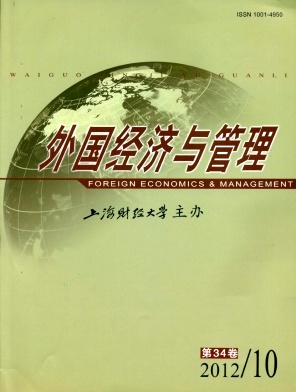国外消费者自我赠礼研究进展探析
外国经济与管理 2012 年 第 34 卷第 10 期, 页码:67 - 73
摘要
参考文献
摘要
消费者的自我赠礼是一个不可忽视的新兴现代消费趋势,是消费者通过特殊的放纵来进行象征性自我沟通的方式。本文阐述了自我赠礼的内涵及与人际赠礼的区别,梳理了自我赠礼的背景情境和动机的对应关系,介绍了自我赠礼的礼物和结果,阐述了自我赠礼对企业营销管理的启示,并指出了未来研究的发展方向。
[1]Atalay A S and Meloy M G.When the going gets tough,the tough go shopping:An examination of self-gifting behavior[J].Advances in Consumer Research,2006,33(1):259-260.
[2]Gremler D.The critical incident technique in service research[J].Journal of Service Research,2004,7(1):65-89.
[3]Harris L.Jaycustomer behavior:An exploration of types and motives in the hospitality industry[J].Journal of Services Marketing,2010,24(5):339-357.
[4]Heath M T,et al.Self-gift giving:Understanding consu-mers and exploring brand messages[J].Journal of Marketing Com-munication,2011,17(2):127-144.
[5]Hogg M and Maclaran P.Rhetorical issues in writing inter-pretivist consumer research[J].Qualitative Market Research,2008,11(2):130-146.
[6]Jane B T and Jennifer P.Justifying fun:Hedonic consumption and self-gifts among college students[J].Journal of the Aca-demy of Marketing Science,2012,40(1):19-23.
[7]Leung T K P and Wong Y H.One possible consequence of guanxi for an insiders:How to obtain and maintain it?[J].European Journal of Marketing,2008,42(1/2):23-34.
[8]Luomala H.A mood-alleviative perspective on self-gift beha-viours:Stimulating consumer behaviour theory development[J].Journal of Marketing Management,1998,14(1):109-132.
[9]Luomala H and Laaksonen M.Mood-regulatory self-gifts:De-velopment of a conceptual framework[J].Journal of Econo-mic Psychology,2009,30(2):147-187.
[10]McKeage K R,et al.Self-gifts and manifestation of material values[J].Advances in Consumer Research,2003,30(3):359-364.
[11]Mesquita B and Karasawa M.Self-conscious emotions as dy-namic cultural processes[J].Psychological Inquiry,2004,15(2):161-166.
[12]Mick D and DeMoss M.Self-gifts:Phenomenological insights from four contexts[J].Journal of Consumer Research,1990,17(3):322-332.
[13]Mick D and DeMoss M.Further findings on self-gifts:Pro-ducts,qualities and socioeconomic correlates[J].Advances in Consumer Research,1992,19(1):140-146.
[14]Mick D V and Faure C.A projective study of motivations and meanings of self-gifts:Implications for retail management[J].Journal of Retailing,1992,68(2):122-144.
[15]Mick D V and Faure C.Consumer self-gifts in achievement contexts:The role of outcomes,attributions,emotions,and de-servingness[J].International Journal of Research in Marke-ting,2011,29(2):1293-1307.
[16]Millington A,et al.Gift giving,guanxi and illicit payments in buyer-supplier relations in China:Analyzing the experience of UK companies[J].Journal of Business Ethics,2012,64(1):1255-1268.
[17]Minowa Y and Stephen J.Love my gift,love me or is it love me,love my gift:A study of the cultural construction of ro-mantic gift giving among Japanese couples[J].Advances in Consumer Research,2009,36(1):119-124.
[18]Pereira M T.Understanding self-gifts consumer behavior[J].Journal of Personality and Social Psychology,2006,91(6):1111-1123.
[19]Pereira M T and Ennew C.Self-gift consumer behavior:Does it make you feel better?[J].Journal of Personality and Social Psychology,2008,95(6):1316-1324.
[20]Qian W and Razzaque M.Chinese cultural values and gift-giving behaviors[J].Journal of Consumer Marketing,2007,24(4):214-228.
[21]Suri W and Maneesh T.Self-gifting vs.gifting to others:An examination of psychological orientation differences in the do-main of gift giving[J].Advances in Consumer Research,2006,33(1):339-341.
[22]Suri W and Maneesh T.I self gift therefore I am:An exami-nation of self-construal and consumers attitudes towards self-gifting[J].Advances in Consumer Research,2007,34(2):414-417.
[23]Tynan C,et al.Self-gift giving in China and the UK:Collec-tivist versus individualist orientations[J].Journal of Marke-ting Management,2010,26(11/12):1112-1128.
[24]Zhou C and Guang H.Gift giving culture in China and its cultural values[J].Intercultural Communication Studies,2007,16(2):81-93.
[2]Gremler D.The critical incident technique in service research[J].Journal of Service Research,2004,7(1):65-89.
[3]Harris L.Jaycustomer behavior:An exploration of types and motives in the hospitality industry[J].Journal of Services Marketing,2010,24(5):339-357.
[4]Heath M T,et al.Self-gift giving:Understanding consu-mers and exploring brand messages[J].Journal of Marketing Com-munication,2011,17(2):127-144.
[5]Hogg M and Maclaran P.Rhetorical issues in writing inter-pretivist consumer research[J].Qualitative Market Research,2008,11(2):130-146.
[6]Jane B T and Jennifer P.Justifying fun:Hedonic consumption and self-gifts among college students[J].Journal of the Aca-demy of Marketing Science,2012,40(1):19-23.
[7]Leung T K P and Wong Y H.One possible consequence of guanxi for an insiders:How to obtain and maintain it?[J].European Journal of Marketing,2008,42(1/2):23-34.
[8]Luomala H.A mood-alleviative perspective on self-gift beha-viours:Stimulating consumer behaviour theory development[J].Journal of Marketing Management,1998,14(1):109-132.
[9]Luomala H and Laaksonen M.Mood-regulatory self-gifts:De-velopment of a conceptual framework[J].Journal of Econo-mic Psychology,2009,30(2):147-187.
[10]McKeage K R,et al.Self-gifts and manifestation of material values[J].Advances in Consumer Research,2003,30(3):359-364.
[11]Mesquita B and Karasawa M.Self-conscious emotions as dy-namic cultural processes[J].Psychological Inquiry,2004,15(2):161-166.
[12]Mick D and DeMoss M.Self-gifts:Phenomenological insights from four contexts[J].Journal of Consumer Research,1990,17(3):322-332.
[13]Mick D and DeMoss M.Further findings on self-gifts:Pro-ducts,qualities and socioeconomic correlates[J].Advances in Consumer Research,1992,19(1):140-146.
[14]Mick D V and Faure C.A projective study of motivations and meanings of self-gifts:Implications for retail management[J].Journal of Retailing,1992,68(2):122-144.
[15]Mick D V and Faure C.Consumer self-gifts in achievement contexts:The role of outcomes,attributions,emotions,and de-servingness[J].International Journal of Research in Marke-ting,2011,29(2):1293-1307.
[16]Millington A,et al.Gift giving,guanxi and illicit payments in buyer-supplier relations in China:Analyzing the experience of UK companies[J].Journal of Business Ethics,2012,64(1):1255-1268.
[17]Minowa Y and Stephen J.Love my gift,love me or is it love me,love my gift:A study of the cultural construction of ro-mantic gift giving among Japanese couples[J].Advances in Consumer Research,2009,36(1):119-124.
[18]Pereira M T.Understanding self-gifts consumer behavior[J].Journal of Personality and Social Psychology,2006,91(6):1111-1123.
[19]Pereira M T and Ennew C.Self-gift consumer behavior:Does it make you feel better?[J].Journal of Personality and Social Psychology,2008,95(6):1316-1324.
[20]Qian W and Razzaque M.Chinese cultural values and gift-giving behaviors[J].Journal of Consumer Marketing,2007,24(4):214-228.
[21]Suri W and Maneesh T.Self-gifting vs.gifting to others:An examination of psychological orientation differences in the do-main of gift giving[J].Advances in Consumer Research,2006,33(1):339-341.
[22]Suri W and Maneesh T.I self gift therefore I am:An exami-nation of self-construal and consumers attitudes towards self-gifting[J].Advances in Consumer Research,2007,34(2):414-417.
[23]Tynan C,et al.Self-gift giving in China and the UK:Collec-tivist versus individualist orientations[J].Journal of Marke-ting Management,2010,26(11/12):1112-1128.
[24]Zhou C and Guang H.Gift giving culture in China and its cultural values[J].Intercultural Communication Studies,2007,16(2):81-93.
引用本文
白琳. 国外消费者自我赠礼研究进展探析[J]. 外国经济与管理, 2012, 34(10): 67–73.
导出参考文献,格式为:
下一篇:国外关系治理研究最新进展探析





 6530
6530  433
433

